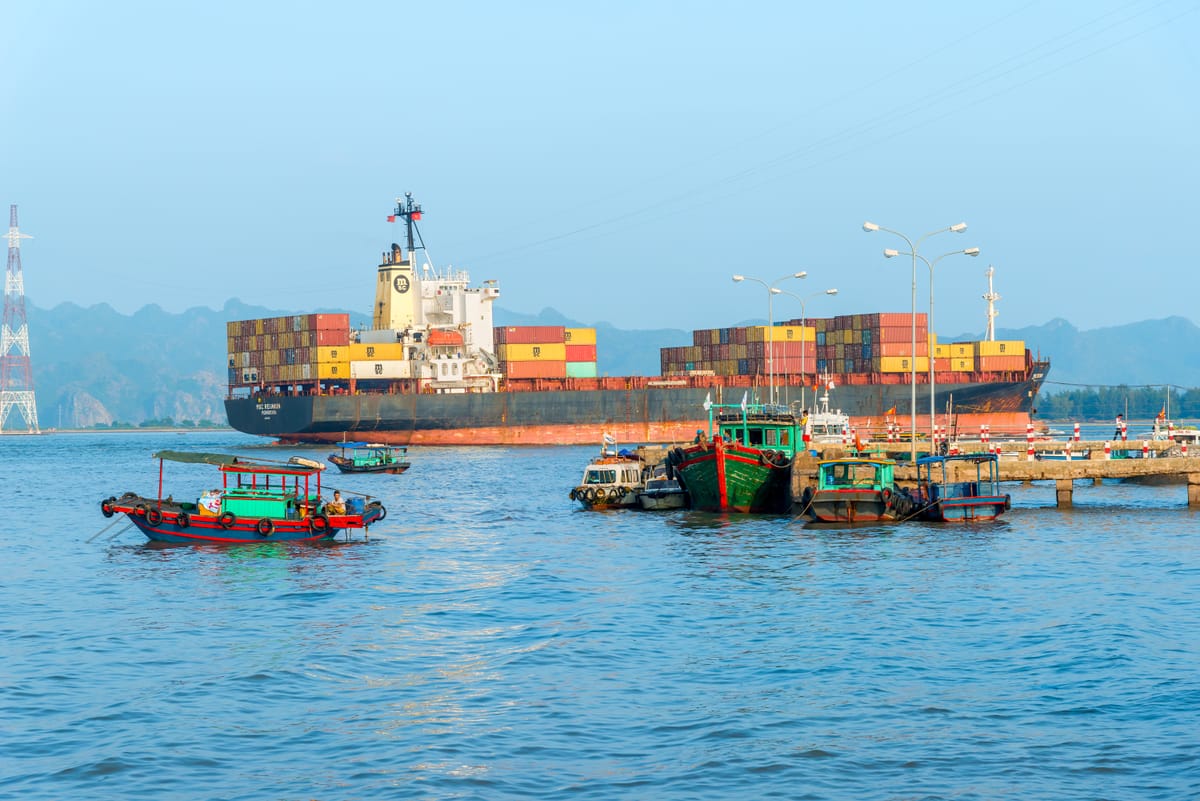Chinese Foreign Minister Talks Rail Link with Vietnam on Hanoi Visit

The Lede: China’s foreign minister Wang Yi visited Vietnam on Friday and met with high-ranking officials in the capital, paving the way for a possible visit by Chinese President Xi Jinping this month. The two sides discussed future increases in high-level exchanges, improved security, economic, and maritime ties, as well as plans to upgrade railway links that would boost access to Vietnam’s highly sought-after rare earth resources.
What We Know:
- Wang met with his Vietnamese counterpart Bui Thanh Son and greeted Communist Party General Secretary Nguyen Phu Trong and President Vo Van Thuong according to Vietnam’s Ministry of Foreign Affairs.
- According to a readout published on the Vietnamese government portal, officials discussed a possible upgrade of their underdeveloped rail links to improve a line that runs through Vietnam’s rare earths region to the country’s top port in the north of the country. Currently, Vietnam’s rail connections to China are outdated and not interoperable. Trains have to stop at the border and transfer passengers and goods to domestic services.
- In talks with his Vietnamese counterpart, Wang said that the two countries should work together at sea, which likely refers to disputes over claims in the South China Sea. Vietnamese Deputy Prime Minister Tran Luu Quang noted that the two countries should cooperate to improve goods clearance procedures at borders while also speeding up the opening of Chinese markets for Vietnamese agriculture and aquaculture products.
- Wang’s trip to Hanoi was expected to pave the way for Chinese President Xi Jinping’s visit to the country, which is expected December 14 to 16.
- This week Vietnam’s president also conferred its top partnership ranking on Japan on a visit to Tokyo.
The Background: Vietnam is China’s biggest ASEAN trading partner. However, the two countries still have disputed claims over parts of the South China Sea. In June, two Chinese energy storage and battery companies revealed plans for large investments in Vietnam. In September this year, following his attendance at the G20 summit in New Delhi, U.S. President Joe Biden visited Hanoi. He and Vietnam’s General Secretary Nguyen Phu Trong elevated their countries’ relationship to a "comprehensive strategic partnership.” This designation put the U.S. on a diplomatic par with China and Russia. At Chinese commerce minister Wang Wentao’s November visit, Vietnamese prime minister Pham Minh Chinh called for the upgrade of the railway linking Kunming in southern China to Vietnam's port city of Haiphong.
Likely Outcomes:
- While China has already been actively fostering political and economic ties with Vietnam, Hanoi’s recent elevation of ties with both the U.S. and Japan to the status of “comprehensive strategic partnership” gives Beijing even more motivation to focus its attention on its southern neighbor. Vietnam has been benefiting from both sides of the U.S.-China economic rivalry as major supply chains shift toward the region as a safer alternative to geopolitical risk as well as for future growth potential as a promising emerging market.
- Security cooperation is another area where Vietnam may want to play both sides, but it may be trickier than the economic and trade angle. Working too closely with one side may approach some red lines of the other, especially as it pertains to the South China Sea. Talks of military cooperation were at the forefront of talks with Japan this week, which was likely noted by Beijing.
- There is no indication of how much China would contribute to upgrading the discussed railway and if Vietnam would engage in such financing. The officials also did not make clear whether it would be labeled as a Belt and Road project. The improved railway would help facilitate Vietnam’s export of agricultural products, Chinese tourism to northern Vietnam, and help bring together manufacturing industries across the border.
Quotables:
“The two sides should deepen cooperation in trade, connectivity, and key minerals, and jointly build a mutually beneficial, stable, and unimpeded production and supply chain system…China and Vietnam should actively promote mutually beneficial cooperation at sea, prevent the involvement of external forces, and accelerate consultations on the Code of Conduct in the South China Sea.” - Wang Yi, foreign minister of China
Good Reads:
China’s top diplomat visits Vietnam ahead of likely Xi trip (Radio Free Asia)
China, Vietnam weigh rail link through rare earths heartland (Reuters)
Supply chains headline China-Vietnam talks as US vies for influence (SCMP)
Japan and Vietnam agree to boost ties and start discussing Japanese military aid amid China threat (AP)
